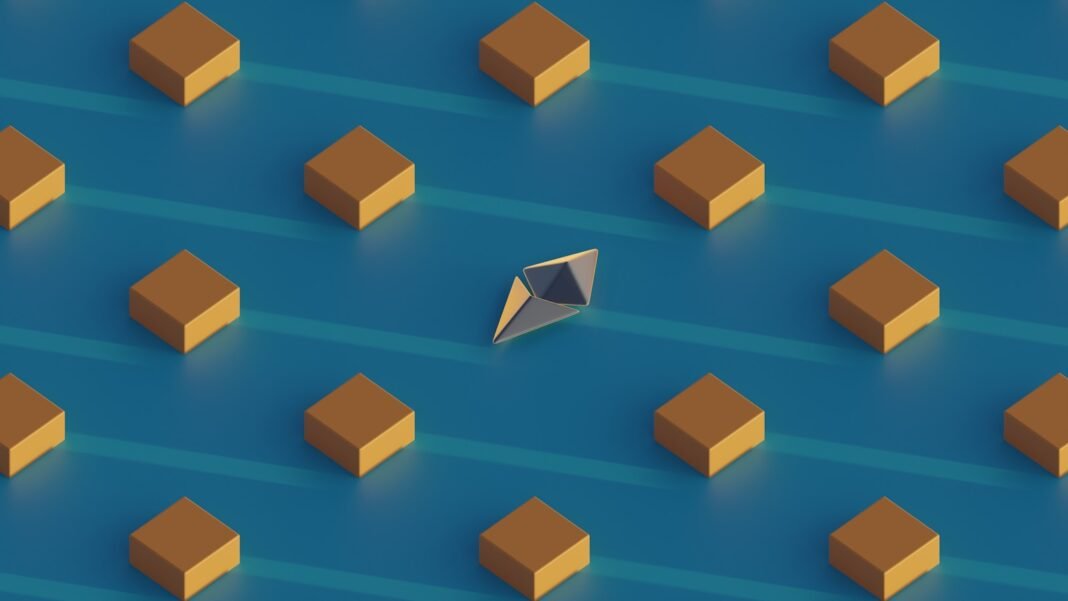Imagine an organization with no CEOs, no boardrooms, and no hierarchy, just a group of people making decisions together, transparently, and without intermediaries. This is the promise of DAOs (Decentralized Autonomous Organizations), one of the most revolutionary applications of blockchain technology.
DAOs represent a new way of organizing communities, businesses, and even governments through blockchain governance, where rules are encoded in smart contracts and decisions are made collectively by token holders. But how do they work? Are they truly autonomous, and what are their real-world implications?
In this blog, we’ll explore the fundamentals of DAOs, how they leverage blockchain for decentralized decision-making, their advantages and challenges, and whether they could redefine the future of organizational structures.
Also Read: CEX vs DEX: Which Crypto Exchange Is Right for You?
Understanding DAOs: The Basics
A DAO (Decentralized Autonomous Organization) is an entity that operates entirely on a blockchain, governed by smart contracts instead of traditional leadership. Unlike conventional corporations, which rely on executives and legal frameworks, DAOs run on pre-programmed rules that execute automatically when certain conditions are met.
Here’s how they function:
- Smart Contracts as the Backbone
The rules of a DAO are written into smart contracts—self-executing code on a blockchain. These contracts define how proposals are made, how voting works, and how funds are managed. - Token-Based Governance
Members usually hold governance tokens, which grant voting rights proportional to their stake. The more tokens someone owns, the more influence they have in decision-making. - Transparent and Immutable Operations
Every transaction, proposal, and vote is recorded on the blockchain, making DAOs fully auditable and resistant to censorship.
This structure allows DAOs to operate without centralized control, enabling global collaboration with minimal trust requirements.
Also Read: Crypto Wallets: Hot vs Cold Storage Comparison
How DAOs Use Blockchain for Governance
The core innovation of DAOs lies in their blockchain governance model. Traditional organizations depend on hierarchies and intermediaries, but DAOs distribute power among participants. Here’s how blockchain enables this:
1. Proposal and Voting Mechanisms
Any member can submit a proposal, whether it’s about fund allocation, project development, or protocol changes. Token holders then vote, and if a majority agrees, the smart contract automatically executes the decision.
2. Treasury Management
DAOs often hold shared funds (like a decentralized treasury). Spending these funds requires member approval, ensuring no single party can misuse resources.
3. Permissionless Participation
Unlike traditional companies with strict membership rules, most DAOs allow anyone to join by acquiring governance tokens. This openness fosters diverse, global participation.
4. Resistance to Censorship
Since DAOs run on decentralized blockchains, they can’t easily be shut down by governments or corporations. This makes them ideal for controversial or experimental projects.
Also Read: How to Buy Bitcoin: Step‑by‑Step Tutorial
Advantages of DAOs
1. Elimination of Centralized Control
No single entity has absolute power, reducing corruption and mismanagement risks. Decisions are made collectively, aligning incentives across all stakeholders.
2. Transparency and Trustlessness
Every action is recorded on-chain, so members can verify transactions without relying on auditors or middlemen.
3. Global and Inclusive Participation
DAOs enable borderless collaboration, allowing people worldwide to contribute and benefit without needing traditional employment or residency status.
4. Lower Operational Costs
By automating governance through smart contracts, DAOs reduce administrative overhead, legal fees, and bureaucratic delays.
Challenges and Risks of DAOs
Despite their potential, DAOs face significant hurdles:
1. Legal Uncertainty
Most countries lack clear regulations for DAOs, creating compliance risks. Some jurisdictions may classify them as illegal securities or unregistered entities.
2. Security Vulnerabilities
Smart contracts are only as secure as their code. Bugs or exploits, like the infamous DAO hack, can lead to catastrophic fund losses.
3. Low Voter Turnout
Many token holders don’t actively participate in governance, leading to decisions made by a small, often wealthy minority.
4. Difficulty in Scaling Consensus
As DAOs grow, reaching agreement becomes harder. Disputes can lead to forks, where the community splits into competing factions.
Also Read: How to Buy Ethereum: The Complete Beginner’s Guide
Real-World Examples of DAOs
DAOs are already being used in various industries:
- DeFi (Decentralized Finance): Protocols like MakerDAO and Uniswap let token holders govern lending rules and fee structures.
- Venture Capital: DAOs like The LAO pool funds to invest in blockchain startups collectively.
- Art and Media: Platforms like PleasrDAO acquire and manage rare digital art as a community.
- Social Impact: Gitcoin DAO funds open-source software and public goods through decentralized grants.
These examples show that DAOs aren’t just theoretical, they’re actively reshaping industries.
The Future of DAOs
As blockchain adoption grows, DAOs could evolve in several ways:
- Hybrid Organizations: Traditional companies might integrate DAO-like governance for certain decisions.
- Decentralized Governments: Cities or online communities could experiment with DAO-based policymaking.
- Improved Governance Models: New voting systems (like quadratic voting) may address wealth concentration issues.
However, widespread adoption depends on solving legal, security, and usability challenges.
Also Read: How to Pick the Right Crypto Exchange & Trading Platform
Final Thoughts
DAOs represent a radical shift in how humans organize, replacing top-down control with decentralized, transparent, and community-driven governance. While they’re still experimental, their potential to democratize finance, business, and even governance is undeniable.
Yet, they’re not a silver bullet. Issues like regulatory clarity, security, and fair participation must be resolved before DAOs can compete with traditional organizations

